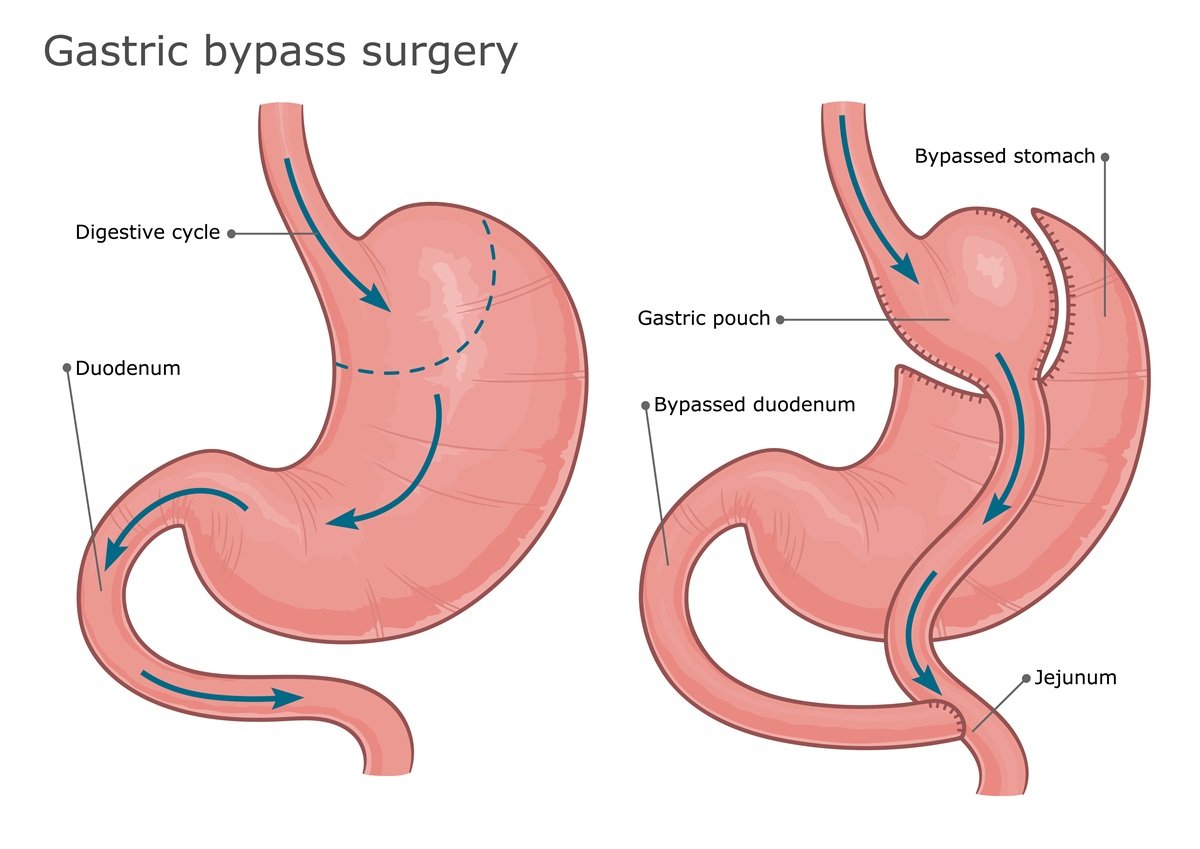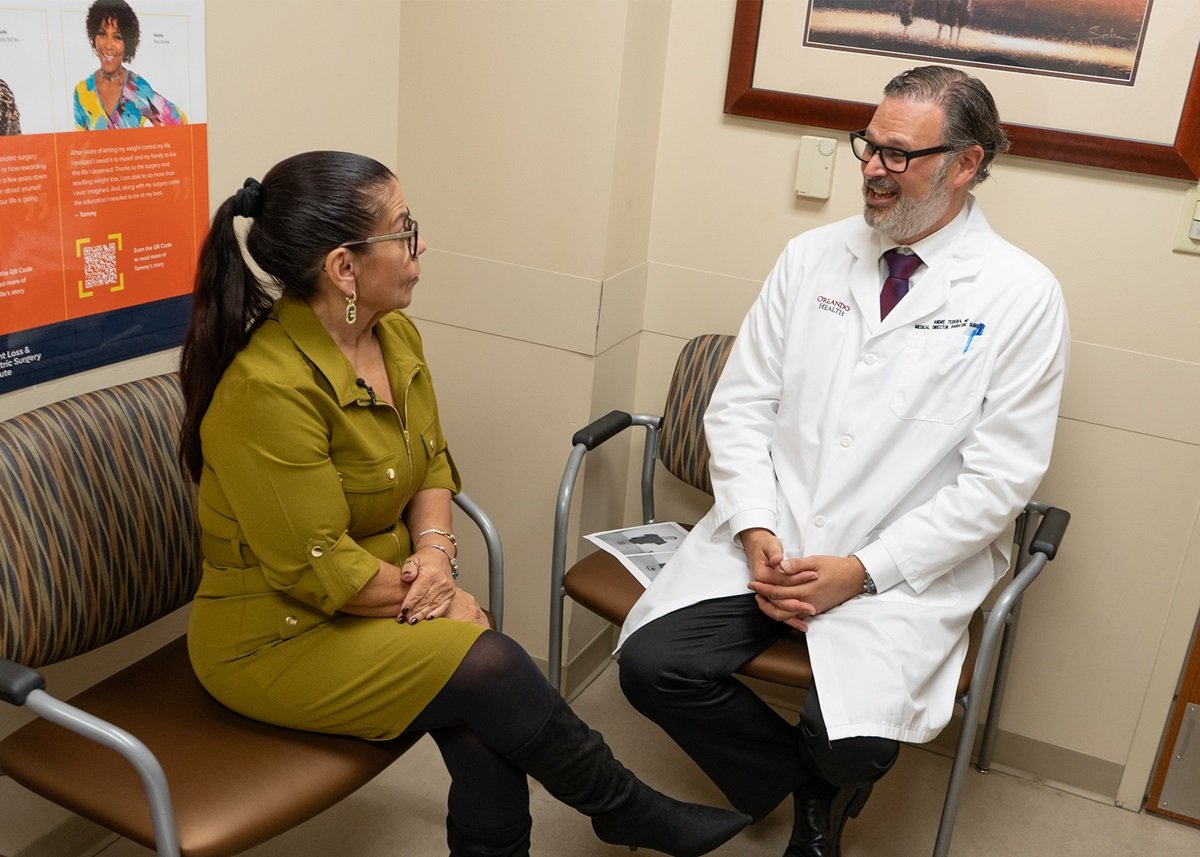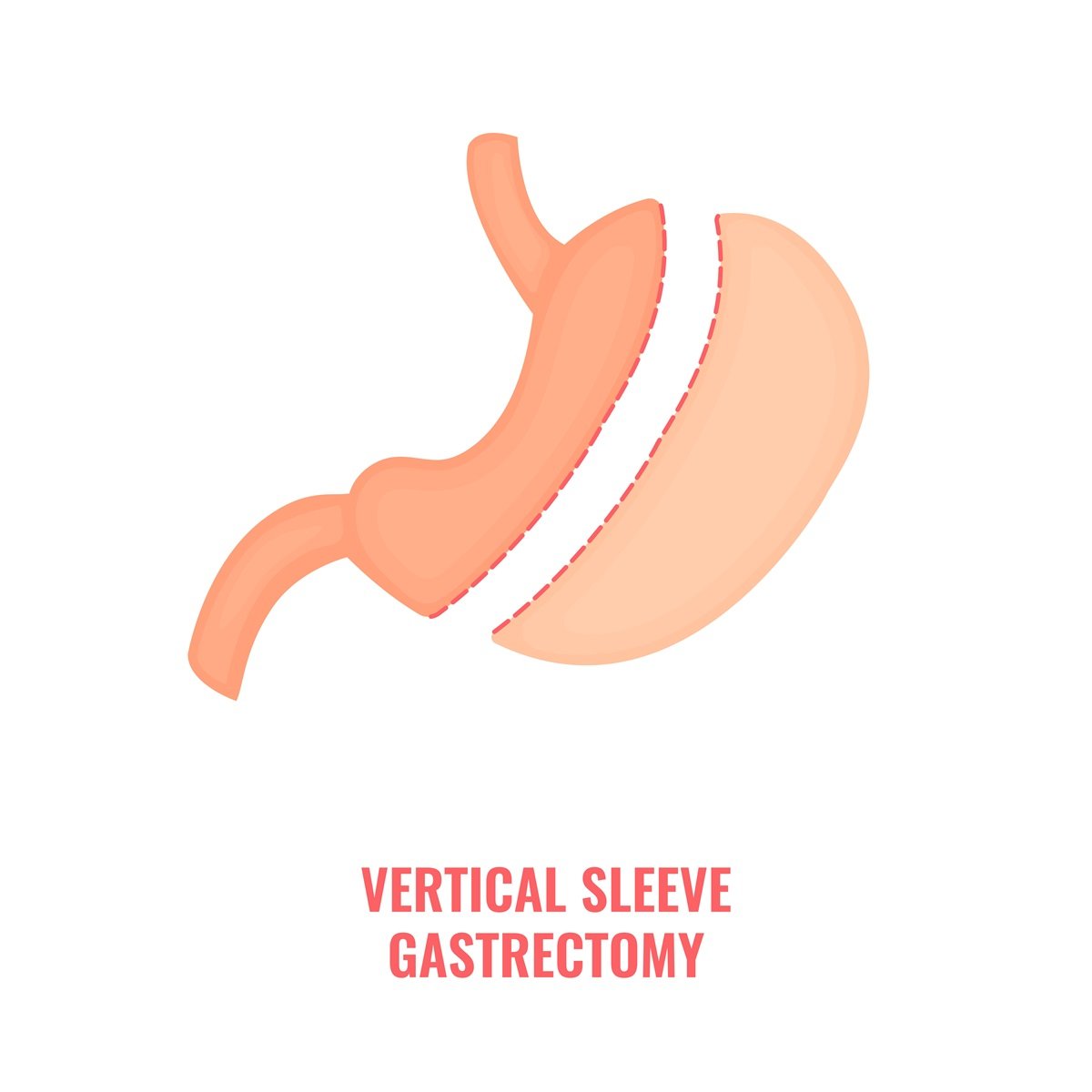Most Americans are wrong about surgical treatments for obesity, medical professionals have warned.
That assessment comes after a nationally representative survey of U.S. adults found that so-called bariatric surgery is often seen as a "shortcut" to weight loss—and something that should be used only as a last resort.
In contrast, doctors say that such operations are needed to reduce obesity-related medical problems and help patients live healthier lives.
More than two in five U.S. adults live with obesity—and one in 11 has severe obesity—with both figures on the rise, according to the National Institutes of Health.
Bariatric surgeries represent an extremely effective treatment option for obesity. However, researchers fear that the stigma created by popular perceptions of the procedures may be putting people off from pursuing the treatment they need.
While millions of Americans are eligible for these operations, only around 250,000 are performed in the U.S. each year.

Bariatric surgery involves making changes to the digestive system to help the person lose weight—either by limiting how much one can eat, the number of calories and how much fat the body can absorb, or both.
While typically effective, the procedures need to be followed by permanent changes to the person's diet and an exercise regime to ensure long-term success.
"Patients can generally expect to lose 70–80 percent of their excess weight in the first 6–12 months after surgery, and on average they maintain approximately 50 percent excess weight loss in the long term," Dr. Kamal Mahawar, a bariatric surgeon with the Sunderland Royal Hospital in England, told Newsweek.
He added: "In addition, they can expect a significant improvement—and even resolution in a large proportion—in a number of obesity-associated health conditions such as type 2 diabetes, high blood pressure, sleep apnea, fatty liver, etc.
"It is a highly cost-effective health intervention. Bariatric surgery adds years to life and life to years!"
Two of the most common types of bariatric surgery are a gastric bypass, in which the top part of the stomach is isolated from the rest, and a sleeve gastrectomy, in which 80 percent of the stomach is removed.
All these surgeries are major operations that can come with risks and side effects. According to Dr. Mahawar, these include an approximate 30-day mortality of 1:1,000, an overall complication risk of 7–8 percent and a major complication risk of 1–2 percent.
However, developments in exploratory and robotic surgery in recent years have made bariatric surgeries both safer and less invasive than ever before—and among the most commonly performed operations in general surgery.
Accordingly, health professionals with the American Society for Metabolic and Bariatric Surgery and the International Federation for the Surgery of Obesity and Metabolic Disorders recently revised their guidelines, making bariatric surgery accessible to a larger number of patients.
Under the new recommendations, patients are eligible for bariatric surgery if they have a body mass index (BMI) of 30 and above with an accompanying condition such as high blood pressure or type 2 diabetes, or 35 and above without.
However, it is estimated that only around 1 percent of those who are clinically eligible for these surgical procedures actually undergo them.

Dr. Andre Teixeira is a surgeon at the Orlando Health Weight Loss and Bariatric Surgery Institute in Florida. Reacting to the survey finding that 60 percent of U.S. adults believe that surgery is a shortcut to weight loss, he told Newsweek: "There is a misconception that it's the easy way out for weight loss—but in reality, it's the opposite.
"Also, bariatric surgery is seen, sometimes, as a cosmetic procedure, but that is so far from the truth. Bariatric surgery is related to the cure or improvement of metabolic disease, and the obesity itself.
He continued: "If you have the courage to ask for help and commit to doing the hard work of changing your diet and improving your life, you're a champion in my book."
An operation is simply a tool to jump-start that kind of change, Teixeira pointed out. "After surgery, it is up to the patient to learn how to eat well, implement exercise into their routine and shift their mindset to maintain their health for the rest of their lives," he said.

"People who choose to have a bariatric procedure are not weak," professor Wendy Brown—a bariatric surgeon from Australia's Monash University, who was not involved in the research—told Newsweek.
She continued: "They are brave. They are recognizing they have an opportunity to improve their health and well being by losing weight and are willing to take steps to overcome the powerful physiology that so often works against them.
"We need to engender empathy for the difficulty people living with obesity face."
However, the survey of 1,017 U.S. adults, which was conducted for Orlando Health by polling company Ipsos, found that 61 percent of respondents don't approve of surgical treatments in the first place and think that people should lose weight using diet and exercise alone.
Similarly, 79 percent of those surveyed said that they felt weight loss surgeries should be pursued only as a last resort.
"Because of the stigma around obesity and bariatric surgery, so many of my patients feel defeated if they can't lose weight on their own," said Dr. Muhammad Ghanem, another bariatric surgeon at the Orlando Health Weight Loss and Bariatric Surgery Institute, according to a statement.
"But when I tell them obesity is a disease and that many of its causes are outside their control, you can see their relief. They often even shed a tear because they've struggled with their weight all their lives and finally have some validation," he said.

Professor Yitka Graham is a researcher with the University of Sunderland whose work focuses on the experiences of people living with obesity, and who undergo bariatric surgery.
She told Newsweek: "Society is not kind to people living with obesity. It is often seen as a moral failing—that people are to blame for their excess weight, despite strong evidence to show that obesity is a complex condition, with environmental, societal, biological and genetic factors at play.
"Moreover, a reductionist calculation of 'eat less, exercise more', is often applied to people living with excess weight, which does not account for the complexity of obesity, and often does not work.
"Society needs to examine its unconscious biases towards obesity and bariatric surgery, and accept that bariatric surgical intervention is an effective method of weight-loss and disease improvement, which is fundamentally life-changing and life-saving for the people who undergo these procedures."
As Graham notes, the stigma around bariatric surgery also discourages many who have undergone these procedures from talking about it openly, and challenging misconceptions.
For example, one patient Graham interviewed in her research—a woman, 48, who lost five stone after a gastric bypass—related the following incident: "I was out with colleagues for a work dinner, and one turned to me and said: 'I know you've had one of those silly stomach stapling operations'.
"I said I hadn't, and she said: 'If I find out you have, I will never speak to you again."
"Bariatric surgery is an effective treatment for people with severe and complex obesity, but is definitely not an easy option, as anyone who has undergone one of these procedures will tell you," Dr. Karen Coulman, an obesity specialist dietitian at the University of Bristol, told Newsweek.
She explained that, after bariatric surgery, individuals require long-term support from health professionals to minimize side-effects like nutritional deficiencies, as well as to support their physical and psychological health.
Coulman added: "Bariatric surgery should in no way be seen as a "shortcut" to weight loss. People seeking bariatric surgery have been trying 'diet and exercise alone' for years and many feel that bariatric surgery is their last resort."
"Obesity is a medical condition like any other and seeking treatment should be commended, it's a fantastic initiative patients are taking to improve their health," Dr. Dan Azagury, a bariatric surgeon with Stanford Health Care, told Newsweek.
He added: "Bariatric surgery is the most effective treatment for obesity, but it's the opposite of a shortcut! It's simply a tool to turn the odds around."
In fact, Azagury explains, in the long-term diet and exercise have a failure rate greater than 90 percent for weight loss.
"The surgery provides [patients] with a tool to go from an 80–90 percent failure rate to an 80–90 percent success rate," he continued, noting that rather than being an unfair shortcut, bariatric procedures can serve to level the playing field for people whose metabolism is unfairly working against them.
Patients, he added, "still have to implement the changes in the long run. It is a battle they fight every single day, to keep the weight off.
"The surgery only turns the fight into one they actually have a chance to win."
Case Study: Maritza Cruz Rivera, 64
Cruz Rivera said that after suffering from fatigue and pain for years, the final straw came during a regular checkup with her primary care physician.
"When they weighed me before my appointment, I looked at the scale and started to cry. There it was: 227," she said. "Something triggered in me in that moment to finally do something about my weight and get some help."
Even though Cruz Rivera was supported by many of her friends and family in her decision to get bariatric surgery—after being told it was a good option for her by a doctor—she also encountered a lot of misconceptions about such procedures.
She said that people considering bariatric surgery should make their decision based on what's best for their health and get the proper facts from a medical professional.

A year after her procedure—and aided by a more healthy relationship with food—Cruz Rivera is at a healthy weight and enjoying life. Her days now include going for long walks, riding a bicycle with her grandchildren and a much-loved pastime: dancing.
"I haven't been able to dance like this in 20 years. I didn't go into this to look like Barbie. I just wanted to live a healthy life with my family, and now I can do that," she said.
"For anyone struggling with obesity who feels depressed or stuck like I did, don't bury yourself in that dark hole. Understand and know that there's always a solution."
Speaking about how he tailors weight loss plans for specific patients, Teixeira said factors that are accounted for include body mass index and existing medical conditions.
The treatment programs, he added, can end up including bariatric surgery, counseling, lifestyle changes and medication.
"By taking this personalized approach, we are extremely successful in reversing health issues caused by obesity, from diabetes to heart disease," he said.
"But if someone's decision is affected by those who think they don't need surgery—or that make them feel like a failure if they have surgery—that greatly diminishes their chances of losing weight and maintaining a healthy lifestyle long term," Teixeira said.
Update 11/01/24, 13:08 p.m. ET: This article was updated to include comment from Drs. Azagury and Coulman.
Uncommon Knowledge
Newsweek is committed to challenging conventional wisdom and finding connections in the search for common ground.
Newsweek is committed to challenging conventional wisdom and finding connections in the search for common ground.
About the writer
Ian Randall is Newsweek's Deputy Science Editor, based in Royston, U.K. His focus is reporting on science and health. He ... Read more
To read how Newsweek uses AI as a newsroom tool, Click here.





